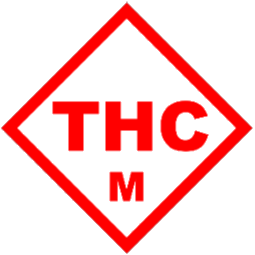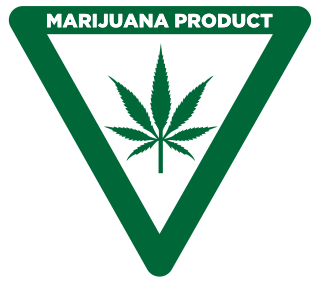Related Research Articles

His Majesty's Revenue and Customs is a non-ministerial department of the UK Government responsible for the collection of taxes,the payment of some forms of state support,the administration of other regulatory regimes including the national minimum wage and the issuance of national insurance numbers. HMRC was formed by the merger of the Inland Revenue and HM Customs and Excise,which took effect on 18 April 2005. The department's logo is the Tudor Crown enclosed within a circle.

Fiona Ma is an American politician and accountant. She has been serving as the California state treasurer since January 7,2019. She previously was a member of the California Board of Equalization (2015–2019),the California State Assembly (2006–2012),and the San Francisco Board of Supervisors (2002–2006).

The Urban-Brookings Tax Policy Center,typically shortened to the Tax Policy Center (TPC),is a nonpartisan think tank based in Washington D.C.,United States. A joint venture of the Urban Institute and the Brookings Institution,it aims to provide independent analyses of current and longer-term tax issues,and to communicate its analyses to the public and to policymakers. TPC combines national specialists in tax,expenditure,budget policy,and microsimulation modeling to concentrate on five overarching areas of tax policy:fair,simple and efficient taxation,social policy in the tax code,business tax reform,long-term implications of tax and budget choices,and state tax issues.

Cannabis in Oregon is legal for both medical and recreational use. In recent decades,the U.S. state of Oregon has had a number of legislative,legal and cultural events surrounding the use of cannabis. Oregon was the first state to decriminalize the possession of small amounts of cannabis and authorize its use for medical purposes. An attempt to recriminalize the possession of small amounts of cannabis was turned down by Oregon voters in 1997.

In Colorado,cannabis has been legal for medical use since 2000 and for recreational use since late 2012. On November 7,2000,54% of Colorado voters approved Amendment 20,which amended the State Constitution to allow the use of marijuana in the state for approved patients with written medical consent. Under this law,patients may possess up to 2 ounces (57 g) of medical marijuana and may cultivate no more than six marijuana plants. Patients who were caught with more than this in their possession could argue "affirmative defense of medical necessity" but were not protected under state law with the rights of those who stayed within the guidelines set forth by the state. The Colorado Amendment 64,which was passed by voters on November 6,2012,led to recreational legalization in December 2012 and state-licensed retail sales in January 2014. The policy has led to cannabis tourism. There are two sets of policies in Colorado relating to cannabis use:those for medicinal cannabis and for recreational drug use along with a third set of rules governing hemp.

Jay Robert "JB" Pritzker is an American billionaire businessman and politician serving since 2019 as the 43rd governor of Illinois. Pritzker,a member of the wealthy Pritzker family that owns the Hyatt hotel chain,has started several venture capital and investment startups,including the Pritzker Group,where he is managing partner.

In the United States,cannabis is legal in 38 of 50 states for medical use and 24 states for recreational use. At the federal level,cannabis is classified as a Schedule I drug under the Controlled Substances Act,determined to have a high potential for abuse and no accepted medical use,prohibiting its use for any purpose. Despite this prohibition,federal law is generally not enforced against the possession,cultivation,or intrastate distribution of cannabis in states where such activity has been legalized. On May 1,2024,the Associated Press reported on plans by the Drug Enforcement Administration to move cannabis to the less-restrictive Schedule III.

Colorado Amendment 64 was a successful popular initiative ballot measure to amend the Constitution of the State of Colorado,outlining a statewide drug policy for cannabis. The measure passed on November 6,2012,and along with a similar measure in Washington state,marked "an electoral first not only for America but for the world."

The legal history of cannabis in the United States began with state-level prohibition in the early 20th century,with the first major federal limitations occurring in 1937. Starting with Oregon in 1973,individual states began to liberalize cannabis laws through decriminalization. In 1996,California became the first state to legalize medical cannabis,sparking a trend that spread to a majority of states by 2016. In 2012,Washington and Colorado became the first states to legalize cannabis for recreational use.

Cannabis in Guam has been legal for medical use since 2015 and legal for recreational use since April 2019. Guam was the first United States Territory to legalize medical marijuana,passing via a ballot referendum in 2014.

Cannabis in Arizona is legal for recreational use. A 2020 initiative to legalize recreational use passed with 60% of the vote. Possession and cultivation of recreational cannabis became legal on November 30,2020,with the first state-licensed sales occurring on January 22,2021.

Cannabis in Missouri is legal for recreational use. A ballot initiative to legalize recreational use,Amendment 3,passed by a 53–47 margin on November 8,2022. Possession for adults 21 and over became legal on December 8,2022,with the first licensed sales occurring on February 3,2023.

Cannabis in New York has been legal for medical purposes under New York law since 2016,and recreational purposes since 2021. As of 2022,recreational cannabis is for sale legally in the state,only through state-approved dispensaries.

Cannabis is legal in Illinois for both medical and recreational use. Illinois became the eleventh state in the US to legalize recreational marijuana effective January 1,2020.

Cannabis in New Jersey is legal for both medical use and recreational use. An amendment to the state constitution legalizing cannabis became effective on January 1,2021,and enabling legislation and related bills were signed into law by governor Phil Murphy on February 22,2021.

Cannabis in Michigan is legal for recreational use. A 2018 initiative to legalize recreational use passed with 56% of the vote. State-licensed sales of recreational cannabis began in December 2019.
The Cannabis Law legalizes recreational cannabis in New York. It is chapter 7-A of the Consolidated Laws of New York,and was originally enacted by the Marihuana Regulation and Taxation Act on March 31,2021 but has since been amended.

The Michigan Regulation and Taxation of Marihuana Act,also known as Proposal 1,was an initiative that appeared on the November 2018 ballot to legalize cannabis in the U.S. state of Michigan. The initiative allows adults 21 and older to possess up to 2.5 ounces (71 g) of cannabis and to grow up to 12 plants at home. The initiative was approved with 56% of the vote.
The Office of Cannabis Management is a New York state government agency established upon passage of the Marijuana Regulation and Taxation Act (MRTA) to implement a regulatory framework for medical and adult-use cannabis in the state of New York,along with hemp regulations as well. It was announced by Governor Andrew Cuomo in the January 2019 State of the State address. The office is charged with the regulation and taxation of the cannabis industry in the State of New York,following the legalization of recreational cannabis which was signed into law by Governor Cuomo on March 31,2021. Tax revenue taken in by the agency was estimated by the Governor to start at $83 million in 2021 and rise to $300 million at full implementation in 2023.
The Cannabis Regulation and Taxation Act was a bill under consideration by the New York State Legislature during the 2020–2021 session to legalize cannabis. It was contained in Part H of the revenue bills embodying Governor Andrew Cuomo's budget proposal,A3009 and S2509.
References
- 1 2 "Governor issues statement in support of DRT director Dafne Mansapit-Shimizu - PNC News First". 2021-10-19. Archived from the original on 2021-10-19. Retrieved 2021-10-19.
- ↑ "I Mina'Trentai Kuåttro Na Liheslaturan Guåha: Appointments" (PDF). Guam Legislature. Archived (PDF) from the original on 2021-08-15.
- ↑ "Statement in Support of DRT Director Dafne Mansapit-Shimizu". 6 October 2021.
- ↑ "IRS approves child tax credit rollout for Guam, CNMI". 2021-10-19. Archived from the original on 2021-10-19. Retrieved 2021-10-19.
- ↑ "$140M in unpaid taxes, citations issued". USA Today . 2021-10-19. Archived from the original on 2021-10-19. Retrieved 2021-10-19.
- ↑ Limtiaco, Steve (1 June 2021). "Cannabis board continues to work on rules for recreational pot".
- ↑ Taitano, Joe (27 November 2023). "Mansapit-Shimizu now with Airport, Lizama heads Rev and Tax".